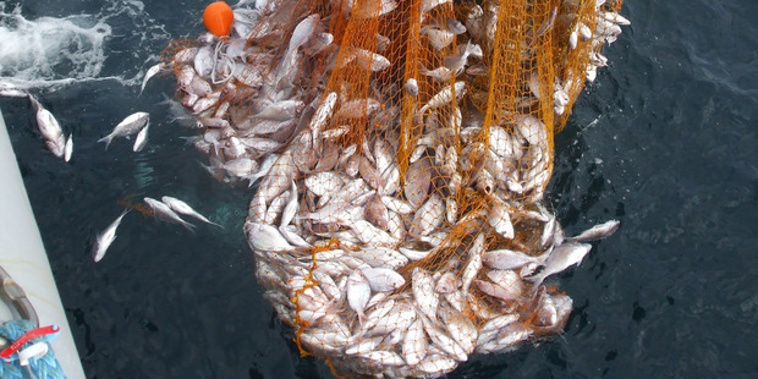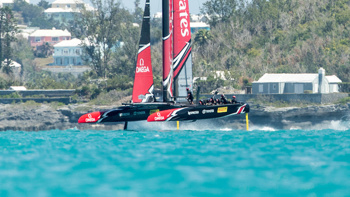
Authorities are calling for an independent inquiry into New Zealand's fisheries industry after a leaked report revealed widespread dumping and under-reporting of hoki catches.
The Ministry of Fisheries 2011 report, which was made public by Greenpeace today, casts doubt on industry claims that lucrative hoki is being fished sustainably.
It showed that companies like Sanford and Talley's had been providing misleading information about the amount of fish they were catching and the species they were targeting.
The report said Talley's potentially failed to report an estimated 780 tonnes of hoki in one season after using an unlawful system of weighing cartons of fish.
Large discrepancies between the carton weights checked by fisheries officers versus those reported by fishing companies also meant that around 280 tonnes of hoki was not reported in monthly returns.
Of the under-reported hoki, 90 tonnes was by Sanford, 59 tonnes by Amaltal, and Independent 49 tonnes.
Greenpeace director Russel Norman said the report was profoundly at odds with public material about fishing industry practises.
"This report is shocking. It lists a multitude of ways that fisheries officers found that fishing companies were seriously under-reporting catches – we're talking thousands and thousands of tonnes of hoki that has been made to disappear."
He said such failures meant authorities were not able to accurately set quota levels and hoki was at risk of being over-fished.
"MPI and the fishing industry have told us that the deepwater fishery was well regulated and managed. They told us that the widespread fish dumping that Greenpeace revealed previously in the inshore fishery was not occurring in the large scale industrial deepwater fishery involving the biggest fishing companies in New Zealand.
"This leaked report shows that the problems of under-reporting and fish dumping in the deepwater fishery is simply a larger scale version of what happens in the inshore fishery."
The report also revealed that, for those ships that turn whole fish into filleted fish at sea, the conversion factor used to convert weight of processed fillets into weight of fish caught resulted in two Sanford vessels under-reporting catch of up to 343 tonnes of hoki and three Amaltal vessels under-reporting 592 tonnes.
Another issue highlighted in the report was that of illegal dumping of fish, with 1541 tonnes of small fish illegally dumped in the West Coast hoki fishery.
Sanford was also accused of fishing in an area that was home to juvenile hoki that needed protecting in order to build up future stocks.
One observer's account stated the vessel was misreporting the target species in order to circumvent the [rules] in order to target juvenile hoki.
"This practice is widespread throughout the domestic and foreign charter fleet," they said.
"Vessels are consistently fishing areas where small hoki cannot be avoided; Some vessels are not landing as much hoki as could be expected; significant quantities of small hoki are being illegally discarded."
Norman told Radio New Zealand this showed a complete disregard for the health of the fishery.
"It's a concentration of hoki which has up to 40 per cent juvenile hoki but there is also adult hoki in there that they actually want to catch so they target this area in order to get this adult hoki, they pull in all of the hoki, they dump the little ones because they only want the big ones."
The report showed under-sized fish, or those the boats did not have quota for, were hidden by being ground in to fish meal for fish and poultry farms.
It said up to 2000 tonnes of fish was disposed of in this way in a single season.
MPI had earlier, under the Official Information Act, released an 11 page version of the leaked 141 page report that left out all the important parts, including the critical 45 recommendations made by the compliance team.
Norman doubted that many of these recommendations were ever implemented.
"Where are the resulting prosecutions and enforcement actions that resulted from this huge compliance operation?" he said.
"We need an independent public inquiry into the fisheries management system and its regulator. But MPI and the seafood industry are trying to prevent this independent inquiry and are instead pushing for an internal review. This leaked report shows why that must not happen."
World Wildlife Fund spokesman Peter Hardstaff told RNZ he wanted to know why the ministry had not made the report public, after it has had access to it for seven years.
"The key issue with this report is about trust, because the public needs to be able to trust the industry and we need to be able to trust the government department that is responsible for regulating the industry and every time a report like this becomes known about it just undermines that trust."
He also believed this presented a need for an independent inquiry.
"This report is deeply disturbing for a number of reasons and not least because the hoki fishery has been held up as a standard bearer for sustainable fishing in New Zealand.
"We've got to remember that fishing quota is a right but with rights come responsibilities and the practices that have been set out in this report, these are the opposite of responsible."
Take your Radio, Podcasts and Music with you









